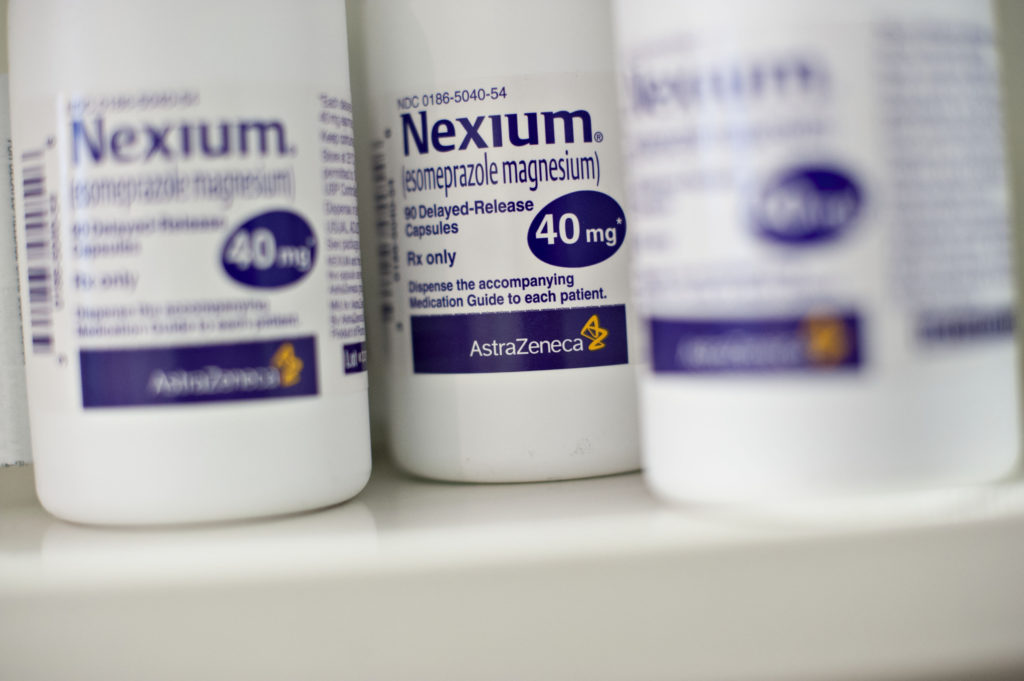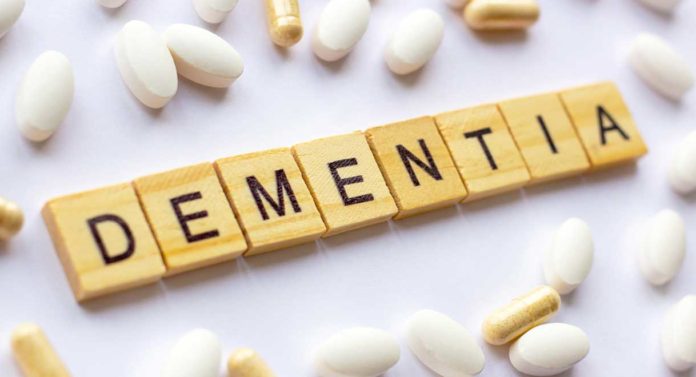Heartburn is miserable but largely treatable. One of the most popular treatments is a class of drugs called “proton-pump inhibitors,” or PPIs. They seem harmless, but a recent study suggests that they may actually increase the risk of dementia. Are you at risk?
What Is A Proton Pump Inhibitor (PPI)?
Heartburn and acid reflux happens when acid from your stomach backs up into your esophagus. It can happen because you’re overproducing stomach acid or because the band of muscle at the bottom of your esophagus weakens over time and doesn’t seal as well. Proton pump inhibitors block acid production, so there’s less acid to back up into your esophagus. While other treatments, such as antacids, will neutralize the acids in your stomach to decrease your pain, PPIs actually decrease production so that ulcers and irritation have a chance to heal.
Some examples of PPIs include:
omeprazole (Prilosec)
pantoprazole (Protonix)
lansoprazole (Prevacid)
esomeprazole (Nexium)
rabeprazole (Aciphex)
They’re taken in pill form and, when taken as directed, are typically associated with very few side effects. The most common side effects include headaches and stomachaches.
PPIs are extremely popular – more than 15 million Americans filled a prescription for them in 2013, paying more than $10 billion for the drugs. That’s a lot of heartburn medication and experts believe it’s being seriously overprescribed and overused.
PPIs are only meant to be used for short periods of time. Usually, a course lasts for a couple of weeks and you’re supposed to take no more than a couple of courses in a year. However, patients who still have symptoms of heartburn and acid reflux can frequently obtain a prescription or purchase an over-the-counter PPI and continue to take the drug.

Overuse of PPIs can cause more serious side effects, including infections, decreased bone density, vitamin B12 deficiency, and clotting problems.
Where Does Dementia Fit In?
A German study recently tracked the health outcomes of more than 70,000 patients taking PPIs and other medications and found a startling link between PPIs and dementia. Those patients over the age of 75 who regularly take proton pump inhibitors had a 44% higher likelihood of developing dementia. The researchers note that this evidence does not prove that PPIs cause dementia, merely that there seems to be some connection between them, and further studies are needed to determine if the link is causal.
What Is Dementia?
It causes memory problems, personality changes, mood swings, and irrationality. Treatment may help in some cases, but there is currently no cure. “ Dementia is frequently progressive, meaning it gets worse as the patient ages.
Dementia stems from brain damage, which may be caused by stroke, thyroid problems, nutritional deficiencies, alcohol abuse, and other health conditions. Certain medications may also cause the types of brain damage associated with dementia. So far, the mechanism by which PPIs might cause that type of damage has not been identified.
Are You At Risk?
As mentioned above, more than 15 million Americans take PPIs every year. People also tend to take more of these drugs than they need and continue to use for a longer period of time than is recommended. If it turns out that these medicines can cause dementia, many Americans may be at risk for the debilitating neurological condition.
While 44% is a very large increase in the risk for dementia, we still don’t know for sure whether there’s a link between proton pump inhibitors and dementia or what that link is. However, you may want to talk to your doctor about your medications and the risks and ask about alternative forms of treatment, especially if you have a family history of dementia.
Remember that dementia isn’t the only potential health risk associated with long-term PPI use, so you may also want to talk to your doctor about alternative treatment options regardless.
If you or a loved one has developed dementia while taking a PPI, you may be entitled to compensation for medical expenses, pain and suffering, and more.
READ MORE: How to Find Names That Means Strong









